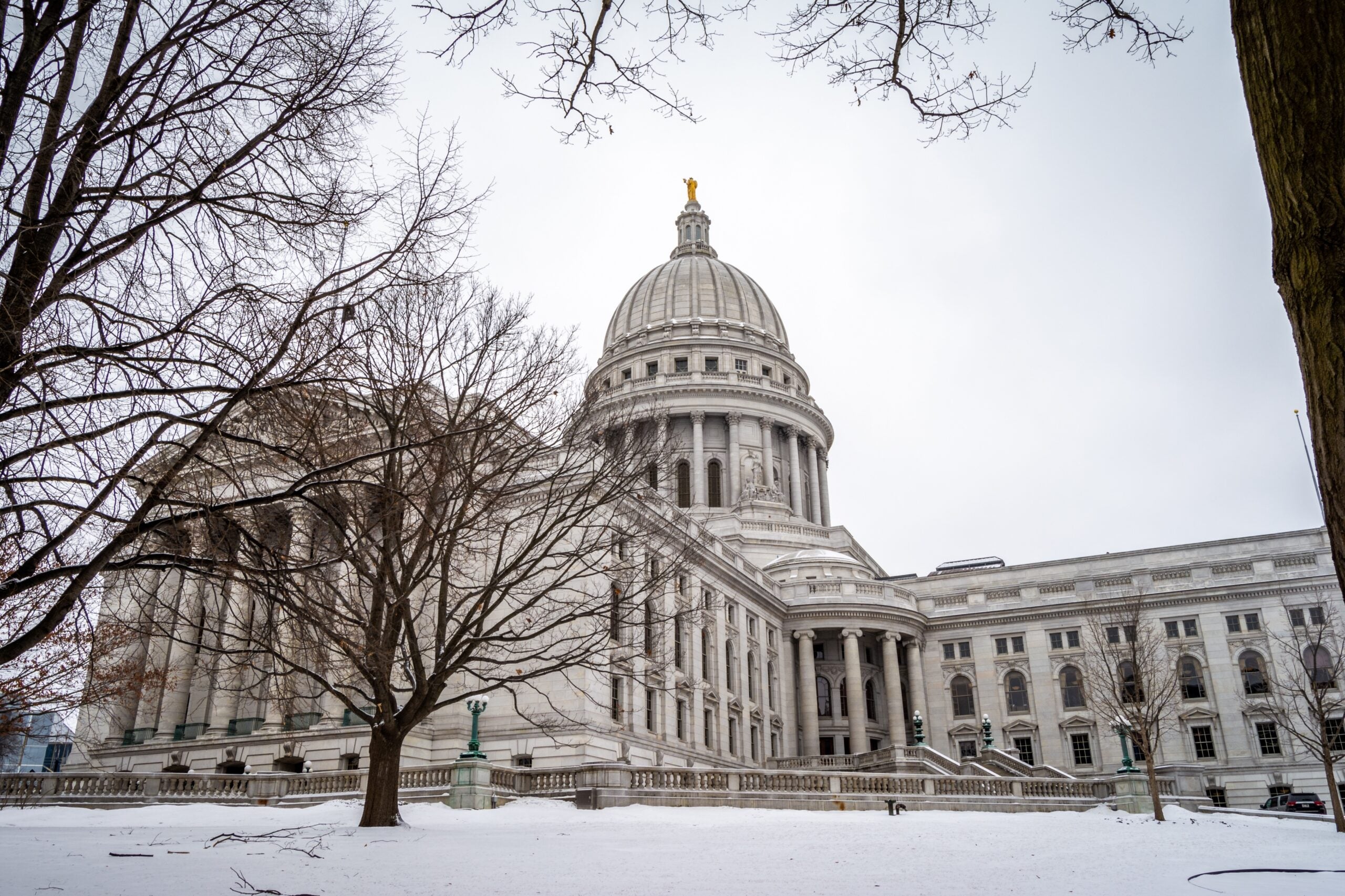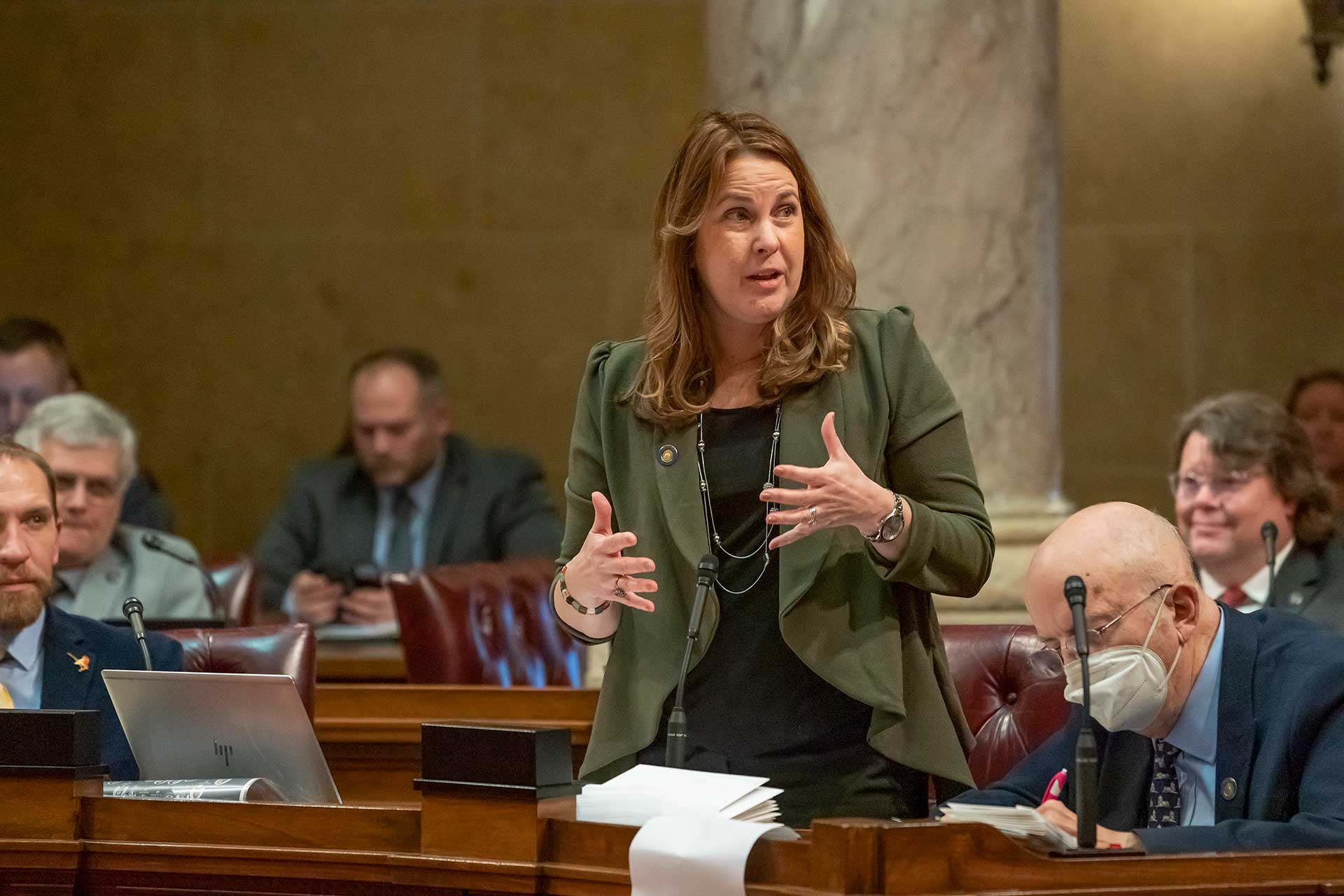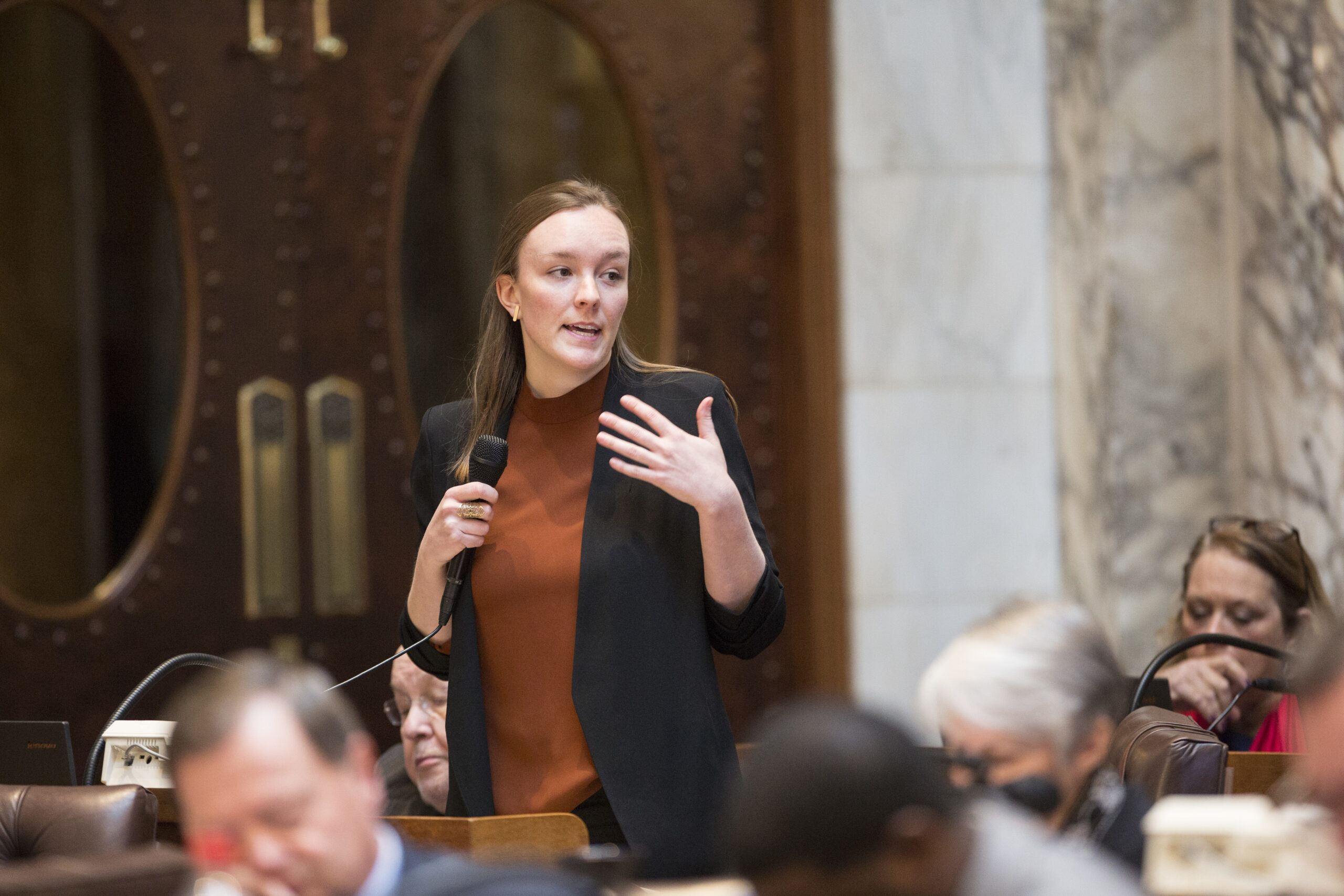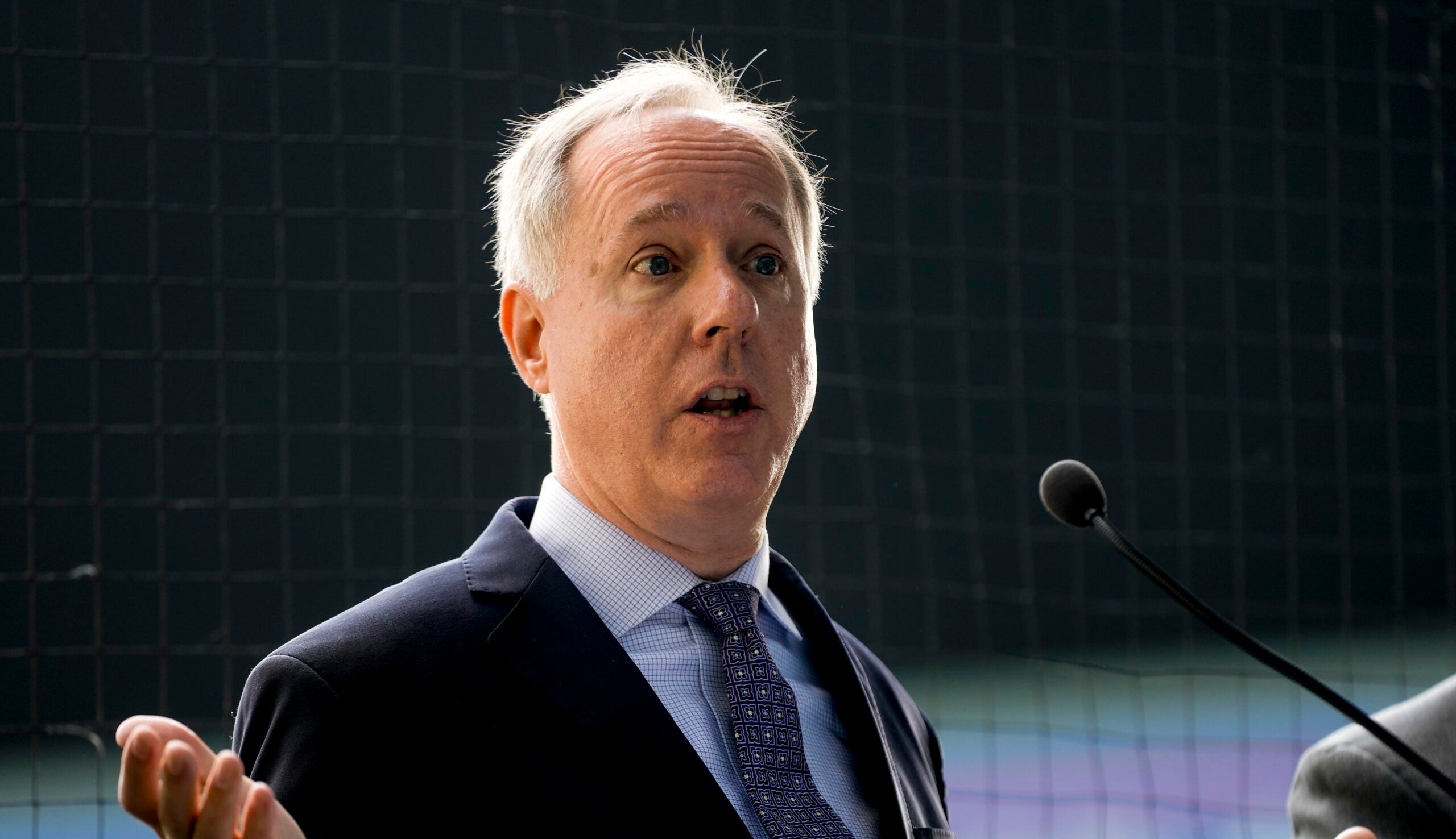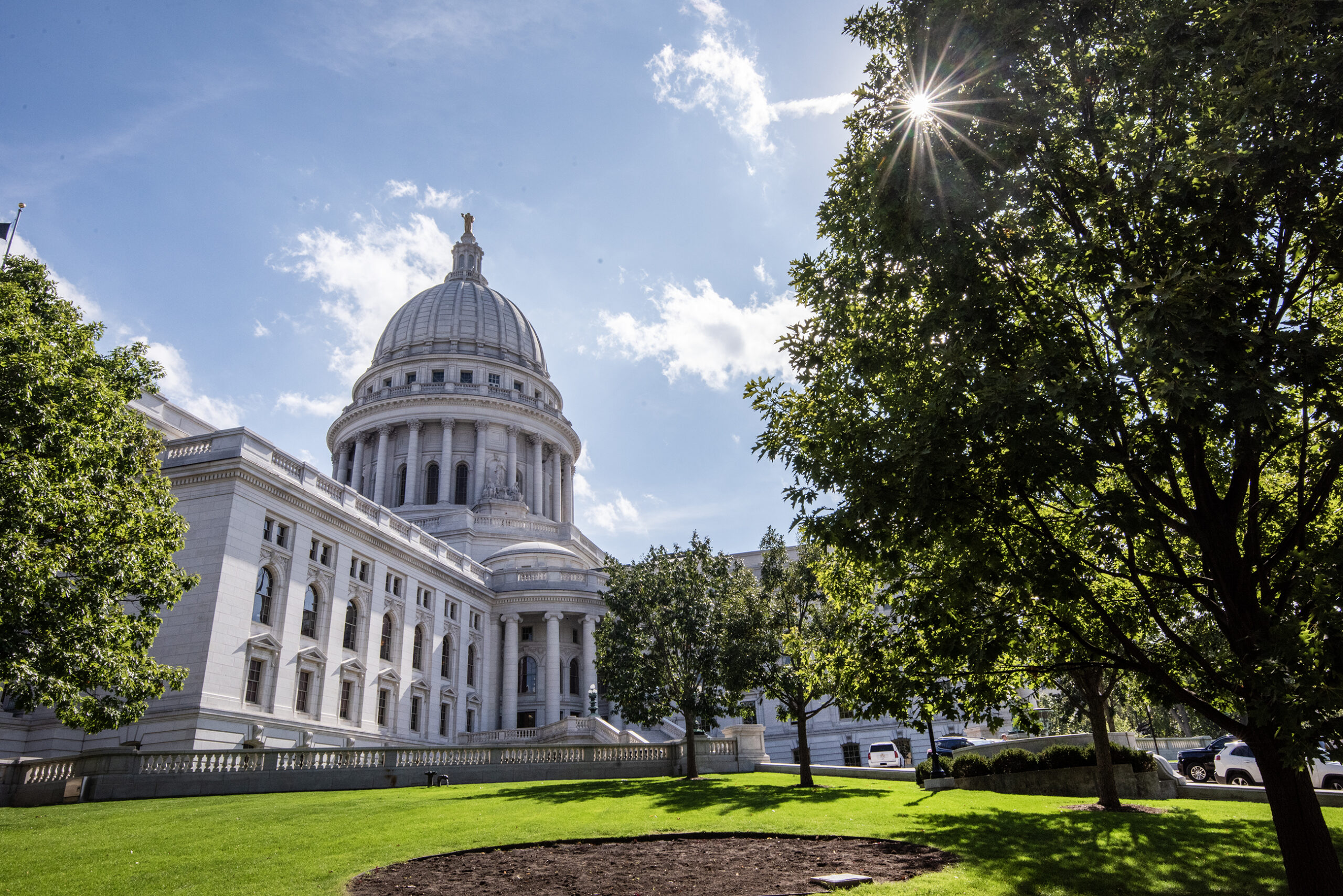A pandemic-era state budget, new legislative district maps and possible changes to state election laws all loomed Monday as state lawmakers began their next two-year legislative session in Madison.
The lawmaking session, which will run through 2022, began with Gov. Tony Evers calling for immediate action on his latest COVID-19 response bill and dozens of Democrats saying they plan to work remotely as cases of coronavirus continue to spread across the state. Republicans — who were re-elected in November to majorities in the state Assembly and Senate — are expected to gather in person at the state Capitol.
In a prepared statement Monday morning, Evers criticized GOP leaders for not doing more to respond to the coronavirus pandemic during the previous legislative session. Lawmakers last met in April 2020.
Stay informed on the latest news
Sign up for WPR’s email newsletter.
Late last month, the governor rolled out a new proposal to respond to the virus, calling it “compromise legislation” after meetings with state Republican leaders. The bill would do things like extend a state requirement that health insurance plans cover testing for COVID-19 without a patient copayment or coinsurance and expand the operating hours of the state unemployment insurance call center, which has grappled with a backlog of claims.
Evers said the bill should be the first thing lawmakers take up in the new session.
“Time is of the essence, and frankly, we cannot delay any longer,” the governor said. “It would be inexplicable after more than 260 days of inaction for any other issue or topic to be taken up by the legislature prior to passing a bill to address COVID-19 — especially one on which we’ve already been able to find common ground.”
Republican Assembly Speaker Robin Vos, R-Rochester, has criticized the governor’s proposal, saying more negotiation is needed. Senate Majority Leader Devin LeMahieu, R-Oostburg, has not commented publicly on the plan.
Assembly Democrats unveiled their own proposal on Monday. It expands on the governor’s bill, adding things like hazard pay for health care workers.
Most Democrats Opt To Work Remotely As Session Begins
Dozens of Democratic state lawmakers will call into committee meetings and floor sessions virtually this year, according to Assembly Minority Leader Gordon Hintz, D-Oshkosh.
“We would all rather be (at the Capitol) in person. We are a social institution, it works much better, but like all Wisconsinites we’re asking people to sacrifice, and we should, too,” Hintz said during an online press conference Monday morning.
Hintz noted Evers’ latest emergency order, issued in November, urges businesses to allow employees to work from home when possible.
“We shouldn’t have to sacrifice our health and the health of our loved ones when we have options that are available,” Hintz said.
Most Assembly Democrats were inaugurated virtually last week, Hintz said. He didn’t expect many, if any, Assembly Democrats to be at the Capitol in person on Monday.
Meanwhile, most Democratic state senators planned to attend the afternoon Senate inauguration in person, according to Sen. Jon Erpenbach, D-West Point.
Erpenbach called April 2020’s virtual floor session “a cluster” in the Senate, noting many Democratic senators were not recognized to speak when they requested to do so.
He said many Senate Democrats plan to be in the Capitol building for committee meetings as the session continues. He said some may choose to call into meetings from their private offices in the building, depending on whether masks are worn and social distancing is being practiced in meeting rooms.
Session To Include New State Budget, Legislative Maps, Possible Election Law Changes
Lawmakers will soon begin work on the 2021-2023 state budget. Evers is expected to deliver his budget address, which formally kicks off the negotiation process, on Feb.16.
The budget will need to accommodate any state revenue changes spurred by the pandemic. The latest numbers from the Legislature’s nonpartisan budget office are expected later this month.
The Legislature will also be tasked with drawing the next set of legislative district maps this session, a process that takes place every 10 years.
The map-making process will begin after the federal government successfully delivers 2020 U.S. Census data to states. That data delivery, slated for March at the latest, may be delayed because of the pandemic.
Republican-drawn maps are likely to be vetoed by Evers, a Democrat, setting off a legal battle.
GOP state lawmakers are also expected to introduce some changes to state election laws in the wake of the contentious 2020 presidential election. Republicans heard testimony from a variety of GOP officials and lawyers last month during a joint Senate and Assembly elections committee meeting, which was spurred by President Donald Trump’s unfounded claims of widespread voter fraud in the election.
Other proposals on any number of issues will surface in the coming weeks, as lawmakers begin circulating bill drafts and seeking co-sponsors.
Republicans continue to hold strong majorities in the state Legislature, with a 60-38 majority in the Assembly and a 20-12 majority in the Senate.
There is one vacant seat in the Assembly, due to the retirement of Rep. John Nygren, R-Marinette, and one vacant seat in the Senate, due to former Senate Majority Leader Scott Fitzgerald, R-Rochester, being elected to Congress. Special elections for those seats are scheduled for the spring.
Wisconsin Public Radio, © Copyright 2024, Board of Regents of the University of Wisconsin System and Wisconsin Educational Communications Board.

